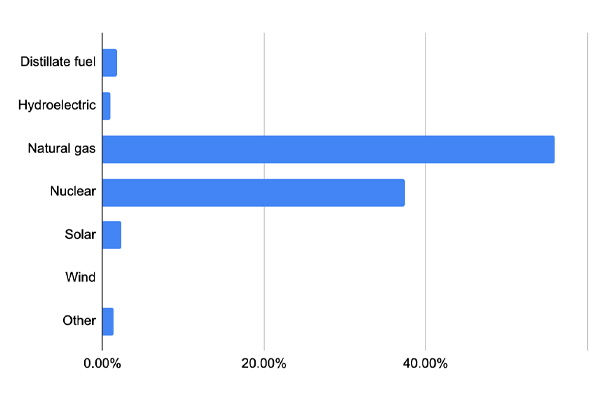Contents

There are many differing opinions & articles about the best options with regards to clean energy for heating your home or business in Connecticut. Unfortunately, the information being presented to consumers is not always completely upfront and truthful.
In this article, we will discuss the following:
- The Reality Of Clean Energy That The Media Doesn’t Report
- What Is the Impact of Heating System Electrification
- How the Oil Industry Is Providing A Clean Energy Solution With Bioheat® Heating Oil
Continue reading to learn more about clean energy in Connecticut and how Wilcox Energy can help you reduce your carbon footprint.
What About Electrification Of A Heating System? What Are The Real Economic And Environmental Impacts?
Let’s face it, it sounds great and feels good to say that we have zero impact on the environment. Today, there is a lot of political pressure for elected officials to utilize “buzz terms” such as electrification, carbon-neutral, zero carbon footprint, etc.
To make matters worse, the media continues to push this narrative without reporting the true cost to the consumer and the real net effect of the reduction in carbon output.
Economic Impacts Of Electrifying A Heating System In Connecticut

There is a true cost of converting an existing liquid fuel heating system into an electrified heating system that the media and politicians do not want to be a focal point of discussion. In order to electrify a heating system in Connecticut and the efforts of creating clean energy, a homeowner would be required to remove their existing oil-fired heating system and replace it with an electric boiler or an electric heat pump.
This comes at a huge expense to the homeowner and the true reality is that it becomes a socially economic inequity. The cost of this upgrade not only includes the equipment installation costs but there are also added hidden costs. For example, a lot of Connecticut homes would require an upgrade to the property’s electrical panel.
The true cost to convert from oil to electric heat in Connecticut could very easily be in excess of $15,000 or more. Furthermore, electric heat pump systems in Connecticut homes also require the installation of a secondary heat source to heat the home when outside temperatures drop below freezing.
Environmental Impacts Of Electrifying A Heating System In Connecticut
The main argument in favor of electrification in the quest for clean energy in Connecticut is that electric heating systems have zero carbon emissions. However, when someone takes an objective view of how electricity is generated in Connecticut, it is clearly evident that this is not the case. According to the U.S. Energy Information Administration (EIA)1, as of 2020, electricity in Connecticut is generated by the following sources:
- 55.94% comes from natural gas
- 37.49% from nuclear
- 1.82% from distillate fuel (including diesel and heating oil)
- 1.01% from hydroelectric
- 2.33% from solar and wind (although the majority of solar is generated from individual homes & businesses)
- 1.41% from coal and other sources

What is often overlooked by the media and politicians is that 59.17% of electricity in Connecticut comes from a fuel source that emits carbon into the atmosphere. And, less than 3% of electricity generated in CT is from renewable wind and solar sources with most of it coming from individual home solar power panels.
Therefore, even if a homeowner spends a significant amount of money to convert their heating system from oil to electric, they are not moving to a zero-emissions solution. In fact, it could be argued that their impact on the environment is higher if the energy to create the new electric boiler or heat pump is considered in this equation.
As you will see further in this article, Wilcox Energy delivers a fuel source that already reduces carbon emissions by 20% with no need to change existing heating systems.
Comfort Impacts Of Electrifying A Heating System In Connecticut
Another convenient omission by politicians and the media is the impact of comfort in exchange for a clean energy solution in Connecticut.
Large-scale electrification of heating systems in Connecticut will create excessive demands on the electrical power grid. As we saw in Texas during the cold snap of 2021, increased demands on electrical power grids result in planned & unplanned power outages.
An all-electric heating system in a Connecticut home opens the potential for having no heat at the time of the year that you need it most. This is not hype, simply refer to the Texas tragedy in April 2021 (At least 111 people died in Texas during a winter storm, most from hypothermia).2 While some of these deaths had nothing to do with the electrical grid being off-line, many did. In fact, some people died in their homes of hyperthermia due to no heat.
Additionally, electric heat pumps lose efficiency as the outside temperatures drop below freezing. In all fairness, the technology continues to improve. However, any Connecticut heating and cooling installation contractor will advise their clients that an electric heat pump solution is not recommended in cold weather climates.
Bioheat® Heating Oil As A Solution For Clean Energy
There are various advantages that our fuel offers:
- Cleaner Burn: Bioheat® heating oil is biodegradable, non-toxic, and sulfur-free. It offers a cleaner burn that produces fewer harmful emissions.
- Improved Equipment Operation: Due to the fact that our liquid renewable fuel is sulfur-free, it helps reduce buildup or scaling on your home heating system. This will improve heat output and system operation.
- No Heating System Modifications Necessary: Bioheat® heating oil can be used in any oil-fired heating system without the need for upgrades.
- It Is Safe: Just like traditional heating oil, Bioheat® heating oil will not burn in a liquid state. It does not explode. Furthermore, it needs to be heated to 140 degrees in order for it to vaporize. If there is a burner malfunction, it will give obvious signs, long before the system leaks dangerous levels of carbon monoxide into your home.
- Bioheat® Fuel Oil Is Green: Our fuel solution offers a clean burn and falls well within the air pollution standards that were set forth by the Environmental Protection Agency (EPA). In fact, it is not even regulated by the Federal Clean Air Act.
- Dependability: It can be safely stored in your heating oil tank for storage. You will not need to worry about any weather or fuel disruptions. You can rely on Wilcox Energy to deliver your fuel where and when you need it.
- Financial Advantages: We offer our Bioheat® heating oil at no extra cost to you.
Providence Resolution
The Providence Resolution was created in 2019 and outlined goals that the oil industry should meet in order to be net neutral or carbon neutral by 2050. At Wilcox Energy, we adopted the resolution and set our sights to meet these goals in advance of the industry.
Our company takes climate change very seriously. This is why we have set our expectations above and beyond those set forth by the Providence Resolution. By being an oil fuel delivery customer of ours, you are automatically helping the environment through the use of Bioheat® heating oil.
Call Wilcox Energy today to learn more about Bioheat® fuel and join us in reducing carbon emissions today!
For more information about our Bioheat® heating oil deliveries or our HVAC services, be sure to contact Wilcox Energy. You can click here to contact us, or you can call us at (860) 399-6218 to find out more. We offer a full line of home comfort services, all customizable to meet your needs. Call now!
1. U.S. Energy Information Administration: Electricity Data Browser ↩
2. The Texas Tribune: At Least 111 People Died In Texas During Winter Storm, Most From Hypothermia ↩
